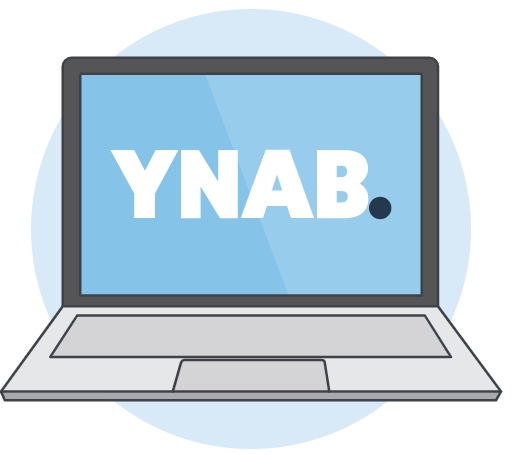Joint Loan: Understand How It Works and If It’s Worth It

Anúncios
In a world where personal and family finances play a crucial role in our lives, access to credit often becomes an unavoidable necessity.
Among the various options available, the joint loan emerges as an alternative that can offer significant advantages.
Anúncios
Therefore, in this article, we will show more details about what a joint loan is and how you can get one. Follow along and check it out!
What is a joint loan?
A joint loan is a type of credit in which two or more people become responsible for a single loan agreement.
Anúncios
In this arrangement, all co-borrowers (co-signers) share the responsibility for repaying the loan, and each is jointly responsible for paying off the debt.
This means that if one party cannot fulfill their share of the payments, the others are legally obligated to cover the total amount due.
The creditworthiness of the parties involved is combined. This can result in more favorable loan terms, such as lower interest rates or higher credit limits, as the risk is spread among the co-signers.
Additionally, the payment history of the joint loan affects the credit of all involved. Timely payments can improve everyone’s credit, while late payments or defaults can harm the credit score of each co-borrower.
All participants must provide financial documentation and undergo credit checks. Approval depends on the combined evaluation of the finances and credit histories of the co-signers.
What benefits does it offer?
Opting for a joint loan can bring several financial and practical advantages. Here are the main benefits:
- Higher Loan Amount: By combining the incomes of all co-borrowers, it’s possible to obtain a larger loan amount than if each applied separately.
- Better Credit Terms: Financial institutions generally consider the risk of default lower when more than one person is responsible for loan repayment.
- Division of Financial Responsibilities: Monthly payments can be divided among the co-borrowers, easing individual financial burden.
- Ease of Approval: When credit histories and incomes are combined, it may be easier to meet the financial institution’s requirements for loan approval.
- Debt Consolidation: A joint loan can be used to consolidate existing debts of two or more people.
- Strengthening Relationships: For couples, family members, or friends who are financially involved, a joint loan can strengthen collaboration and commitment to common financial goals.
- Access to Additional Resources: Combining financial resources may allow access to additional or better financial products, such as credit insurance, that may not be available to a single applicant.
- Credit Improvement: If payments on the joint loan are made on time, all co-borrowers may see an improvement in their credit histories.
Learn how to apply for a joint loan
Applying for a joint loan can be a great way to achieve shared financial goals, such as buying a home or acquiring a vehicle.
However, to ensure that the process is successful, it’s important to follow some fundamental steps.
Check Requirements
Before starting the application process, it’s crucial to verify the requirements needed to obtain a joint loan.
These requirements may vary depending on the financial institution, but generally include credit history, proof of income, personal documentation from all co-signers, debt-to-income ratio, and assets.
Therefore, you must meet these requirements to access the joint loan.
Pre-Qualify
Pre-qualification is an important step that can help better understand your eligibility and the loan terms you may obtain.
During pre-qualification, the financial institution:
- Assesses Your Ability to Pay: Based on the information provided, the institution will determine how much you and your co-borrower(s) can borrow.
- Offers an Estimate of Interest Rates: You will receive an idea of the interest rates and other conditions that may be applied to your loan.
- Doesn’t Affect Your Credit: Pre-qualification typically doesn’t involve a hard credit check, so it won’t affect your credit score.
Compare Options
With pre-qualification in hand, it’s time to compare different loan options to find the best offer.
Compare the interest rates offered by different institutions. Even small variations can make a big difference in the total cost of the loan.
Check the available repayment terms and choose one that fits your budget.
Be aware of any origination fees, prepayment penalties, or other charges associated with the loan.
Finally, read the terms and conditions of each offer carefully to fully understand your responsibilities.
Submit the Application
After comparing your options and choosing the best offer, you’ll be ready to formally submit the joint loan application.
All parties involved will need to fill out and sign the loan application form.
Then, provide all necessary documents, such as proof of income, credit history, and personal documents.
The financial institution will review your application and may contact you for additional information or clarification.
If approved, you and your co-borrower(s) will need to sign the loan agreement. Be sure to read and understand all clauses before signing.
When is a joint loan the right option?
Opting for a joint loan can be a financially advantageous decision in various specific situations.
However, it’s essential to evaluate whether this type of credit is suitable for your personal and financial context. Below, we highlight some circumstances in which a joint loan may be the right choice:
- Home Purchase: When two or more people wish to buy a property together. A joint loan can facilitate loan approval and improve the conditions offered by the financial institution.
- Vehicle Financing: If you and another person are interested in buying a car together. A joint loan may be a good solution.
- Debt Consolidation: For individuals or couples with multiple debts with high-interest rates. Consolidating these debts into a single joint loan can be an effective strategy.
- Joint Ventures and Investments: In situations where two or more people are investing together in a business or a large project. A joint loan can provide the necessary capital more feasibly.
- Credit Score Improvement: If one of the co-borrowers has a lower credit score, partnering with someone with a higher score can help secure a loan with better terms.
With that, the joint loan will be worth it, and you’ll have more financial conditions. Liked the tip? See more on our page. And learn more about personal loan.





